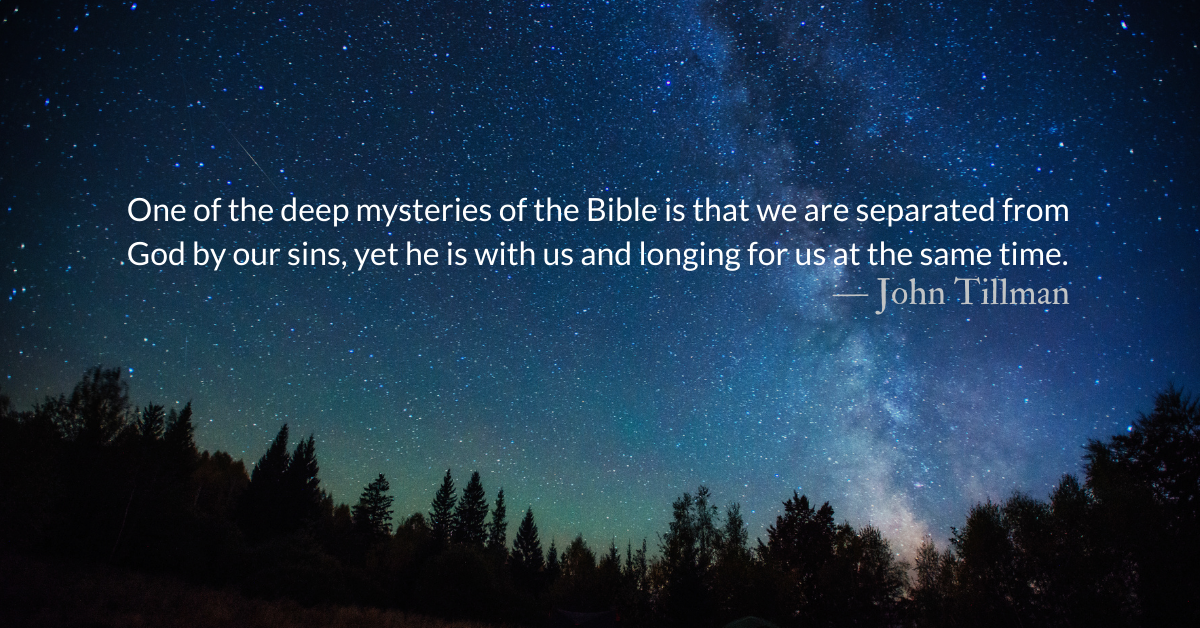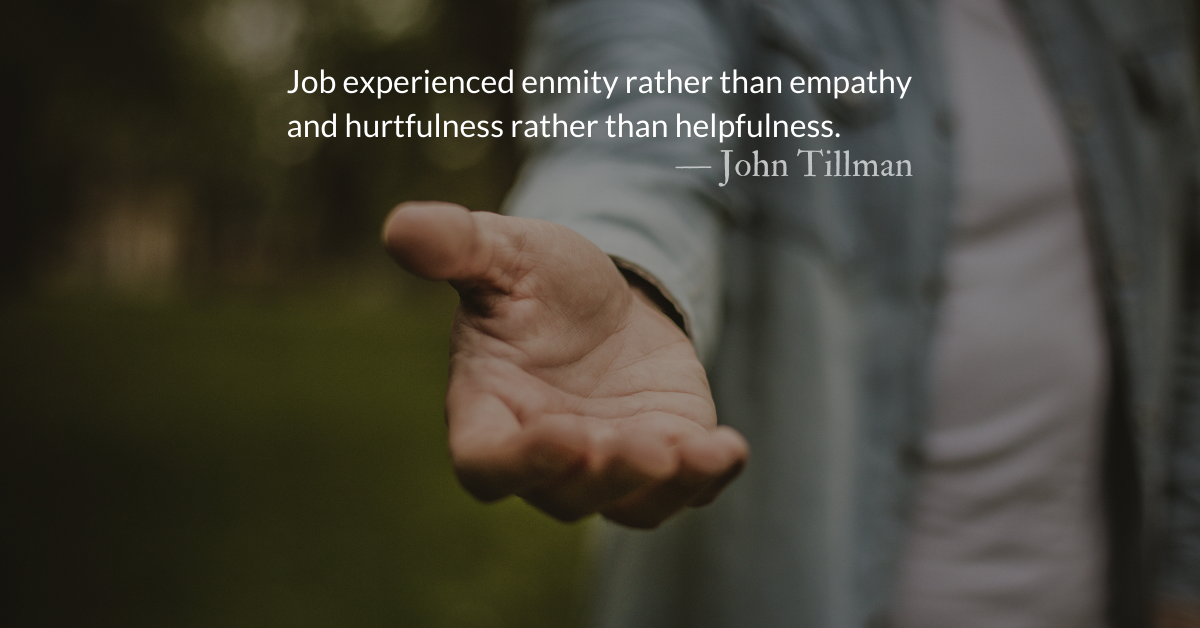Scripture Focus: Job 36.15-17
15 But those who suffer he delivers in their suffering;
he speaks to them in their affliction.
16 “He is wooing you from the jaws of distress
to a spacious place free from restriction,
to the comfort of your table laden with choice food.
17 But now you are laden with the judgment due the wicked;
judgment and justice have taken hold of you.
Reflection: Deliverance Through Suffering
By John Tillman
Elihu is confident that God has good intentions for people’s lives no matter the circumstances. Elihu explained that even the wicked who experienced God’s judgment were being wooed by God. The suffering in their lives was a warning of future judgment to come. Its purpose was to prevent future suffering. God is an earnest and longing lover, calling to the estranged and unfaithful to return to love and safety.
Elihu lists many events or actions that people may suffer from and how even the worst of these can be redeemed by God and used for his good purposes. This is consistent with the rest of the Bible. The Bible, from cover to cover, demonstrates that God turns what is intended for evil into good.
The prologue of Job makes it clear that Job is righteous—beyond suspicion or reproach. Yet, as the righteous one, he suffers by God’s sovereign purpose. Job suffers so that God’s righteousness can be preserved and proved. Job’s suffering overturns the arguments of the accuser, Satan. Job also provides a miraculous demonstration of God’s righteousness on Earth, overturning the misunderstandings his philosophizing friends. Because of Job’s suffering, God’s presence is manifested on Earth. In God’s answer to Job, God reveals that he is more intimately involved in creation and our lives than ever we imagined.
Job’s entire community was affected by his suffering. All who knew Job learned something new about God. All were humbled and drawn closer to God, including Job. Even the struggle of his friends to understand what had happened and Job’s striving with them in debate was (and is) used by God. They learn that what they need is not more self-righteousness, more rules, more truisms, but a closer relationship with God.
Ultimately, we lack the perspective in our lives to always be able to see the purpose of our suffering. Is our suffering a warning? Perhaps. Is God asking us to change something? Perhaps. Will our suffering be instrumental in learning something about God that can be learned no other way? Perhaps. Will seeing our suffering warn others, or woo them to consider Christ? Perhaps.
We must humbly ask for wisdom to glimpse this perspective, being gentle with one another as we seek him. Through suffering, deliverance comes. Through affliction, God speaks. (Job 36.15)
Divine Hours Prayer: The Request for Presence
Bow down your ear, O Lord, and answer me, for I am poor and in misery.
Keep watch over my life, for I am faithful; save your servant who puts his trust in you. — Psalm 86.1-2
– From The Divine Hours: Prayers for Autumn and Wintertime by Phyllis Tickle.
Today’s Readings
Job 36 (Listen – 3:04)
Psalm 48 (Listen – 1:28)
Read more about Learning from the Suffering
May we be gracious to those in crises of faith, not treating them as enemies…we may have something to learn from them about God.
Read more about Fruitful in Suffering
We can be fruitful in the land of our suffering, not by our own cleverness, craft, or scheming, but by the Holy Spirit.











